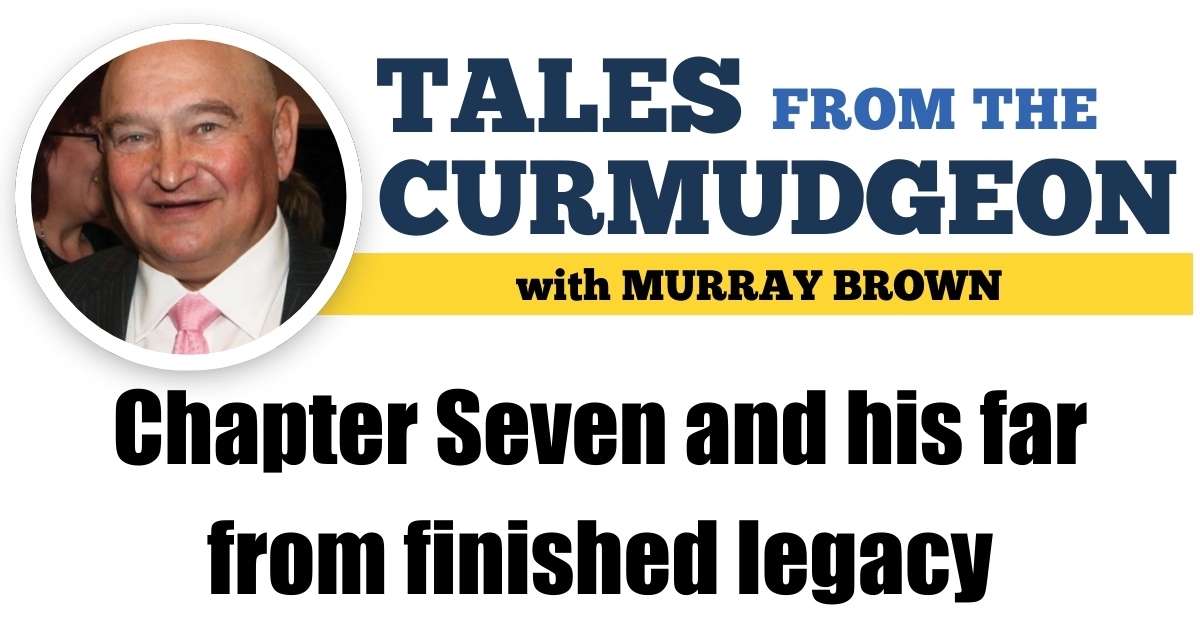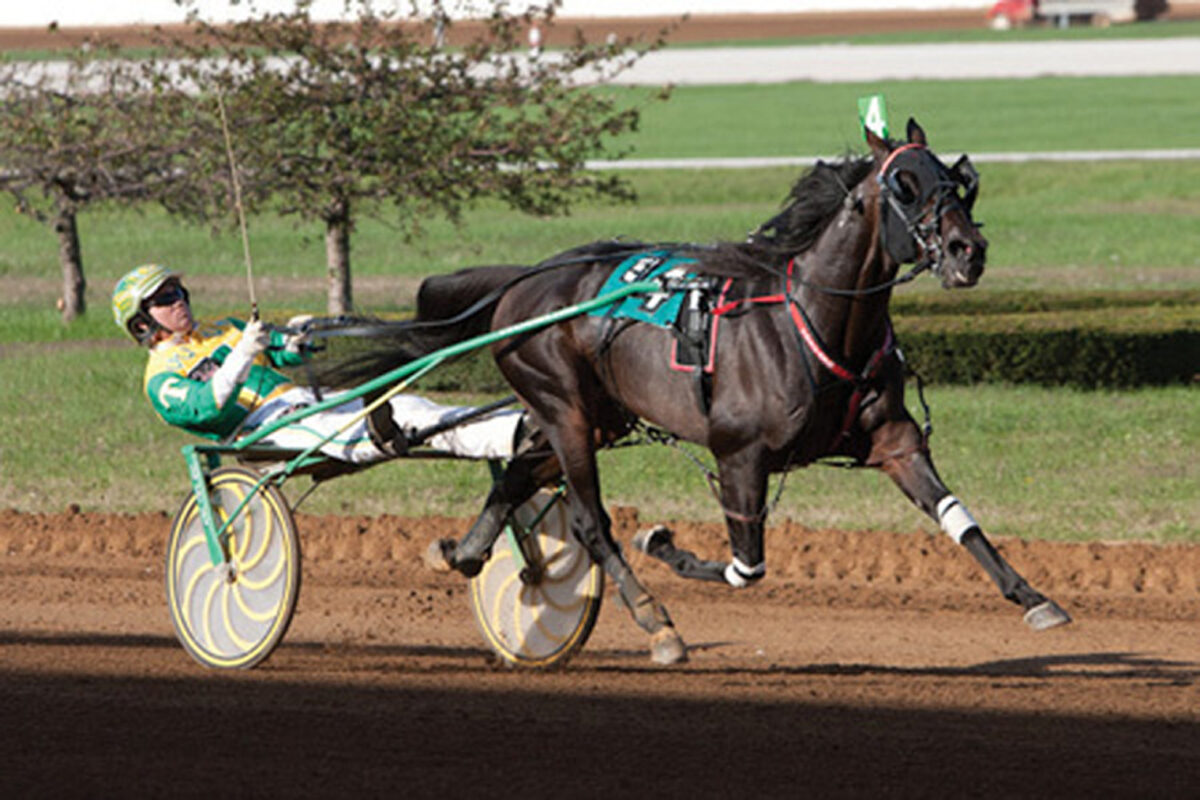Chapter Seven and his far from finished legacy
by Murray Brown
In the aftermath of the fantastic Day 1 of the Lexington Selected Yearling Sale, one cannot help but to be impressed by the performance of the great trotting sire Chapter Seven and his perhaps equally impressive, some might think superior, son Walner. If it were up to me, I’d be more than content, if given a choice of the two with the one not chosen.
Consider this. There were a total of 72 trotting-bred yearlings that underwent the rigorous process to have been chosen as a Day 1 yearling, traditionally the Ne Plus Ultra, the Best of the Best nominated to the number one yearling sale of the breed. Of those 72, 46 (64 per cent) of them were by Chapter Seven and his son Walner.
The trotting bred yearlings selling on Day 1 amassed a total of $15,951,000; $10,402,000 (65 per cent) of that total went for yearlings sired by Chapter Seven and Walner.
When I think of Chapter Seven, I think in terms of great trotting sires like Stars Pride, Valley Victory, and Muscle Hill and perhaps, to a lesser degree, Rodney, Speedy Crown, Super Bowl and Muscle Hill who have had the trotting world revolve around their dominance. There are very few stallions in the history of our breed who have reached that status.
When referencing the type of horse that I believe Chapter Seven to be, I think a line from William Shakespeare’s Julius Caesar best describes them: He doth bestride the Narrow World Like A Colossus. That would be my present-day description of Chapter Seven.
How did it come about? I first went to the source, my friend Linda Toscano, who had the good sense and perhaps good fortune to train Chapter Seven as a yearling and then do the same with his thus far greatest son in the stud, Walner. Before I go any further, I need to give credit to the late Pat Waldo who not only “discovered” Chapter Seven for his owner Richard Gutnick, but also did the same for Valley Victory for Arlene Traub who bought him as a yearling. Imagine if you would, two generational stallions somewhat emanating from the same source! One needs to understand that we are not speaking of gimme yearlings, the ones that click all the boxes at the sale and are destined to become sales toppers.
Chapter Seven was purchased as a yearling from the 2009 Harrisburg Sale for $42,000 by Gutnick acting upon the advice of Waldo. Valley Victory had been purchased for $60,000 at the 1987 Tattersalls Sale by Traub acting on Waldo’s urging.
At the beginning, all was not well for this rising superstar stallion. When he was first turned out in a paddock, he jumped the fence and tore his flank. That resulted in several stitches. The first time he was hooked to a jog cart, he was observed to have been making a noise. The diagnosis was an entrapped epiglottis. Surgery to correct it was deemed necessary.
“If he keeps going like this, he will break me before he even gets to race,” said owner Gutnick with a laugh. That brought about his name being changed to Chapter Seven.
“He was so full of himself in his early training that we sometimes needed two people to lead him on and off the track, for fear of him doing further damage to himself and perhaps inflicting some on those around him,” Toscano said. “He was very talented, maybe too talented for his own good.
“When it came time to qualify him, I enlisted Mike Lachance to do it. Through the years, Mike has probably qualified hundreds of horses for me. When he brought him back, Mike said ‘Linda, this is the very best horse you have ever had.’”
Those who know Lachance know that that is no minor statement. Lachance is not one to throw around those type of superlatives.
“Despite having sickness issues through his career [he had pneumonia twice], he went on to a very distinguished racing career. Was he a great horse in the terms reserved for the greatest in the history of the breed? Probably not, but nonetheless he enjoyed a quite satisfying career and raced extremely well at 2, 3 and 4, before retiring at the conclusion of his 4-year-old season as 2012 Trotter of the Year.
“When it came time to retire him, Richard was offered a syndication deal for him to stand at Blue Chip Farms. I’d be lying if I said that I expected what was going to happen to actually happen. I think that for me, and probably just about everyone else in the business, the expectations were that he was probably destined to become a very nice regional horse, a horse that would comport himself very well in the New York Sires Stakes, with perhaps the odd horse winning an occasional Grand Circuit event.”
We were all wrong, very wrong!
Chapter Seven’s first crop arriving in 2014 numbered 83. The mares they were out of were okay, neither great, nor poor. The expectations were that they would probably race according to expectations. From the very first, he was to show that the expectations were significantly underrated.
Included among them was a very good trotter by the name of Eye Of The Tiger, who went on to earn $972,586. But the star of that group was a striking brown colt named Walner who was also first given his lessons by Toscano. He was sold at Lexington and brought $90,000 for the account of Ken Jacobs.
“He was very special, right from day one” Toscano said. “He had the most remarkable presence of any horse that I’ve ever been around before or since. He gave the impression that he was lightning in a bottle from the very first time we hooked him up. He had more speed than his father, actually more speed than any other horse I’ve ever had in my stable. When he raced, he was dominant. Unfortunately, a very minor injury necessitated his being retired, syndicated and put in the stud. I’ve always felt that he could have been rehabbed and come back to race showing his true greatness. But I firmly understand that he was far more valuable to the breed in the stud barn than he would have been on the racetrack.”
Chapter Seven’s second crop numbered 71, they included the multiple world champion and Hambletonian winner Atlanta ($3,533,707).
His third crop numbered only 49, but they included the great world champion and now rising young sire Gimpanzee ($2,701,075).
With each succeeding crop, he has continued to produce champion after champion including the Hambletonian winner Cool Papa Bell and the great international superstar Jovialty S ($2,542.787 internationally).
This year his star of stars is the amazing 2-year-old Maryland (nee Charlie K Hanover), who pre-Breeders Crown has already collected $795,378. He seems a lock for 2-Year-Old Trotter of the Year and in a non Jiggy Jog S (sired by his son Walner) year might be in consideration for Trotter of the Year.
Tom Grossman at whose Blue Chip Farms Chapter Seven stands said that it took both him and the other syndicate shareholders a little while to figure out the type of mares that suit Chapter Seven best in order to get a perhaps more robust specimen. He is now doing it with a whole lot more frequency.
“After those first two crops, I bought all the shares I could get,” Grossman said. “So now my investment in this great stallion is far more substantial than it originally was.”
Chapter Seven leads all categories for money won by his progeny this year: 2-year-olds, 3-year-olds, and all ages!


















